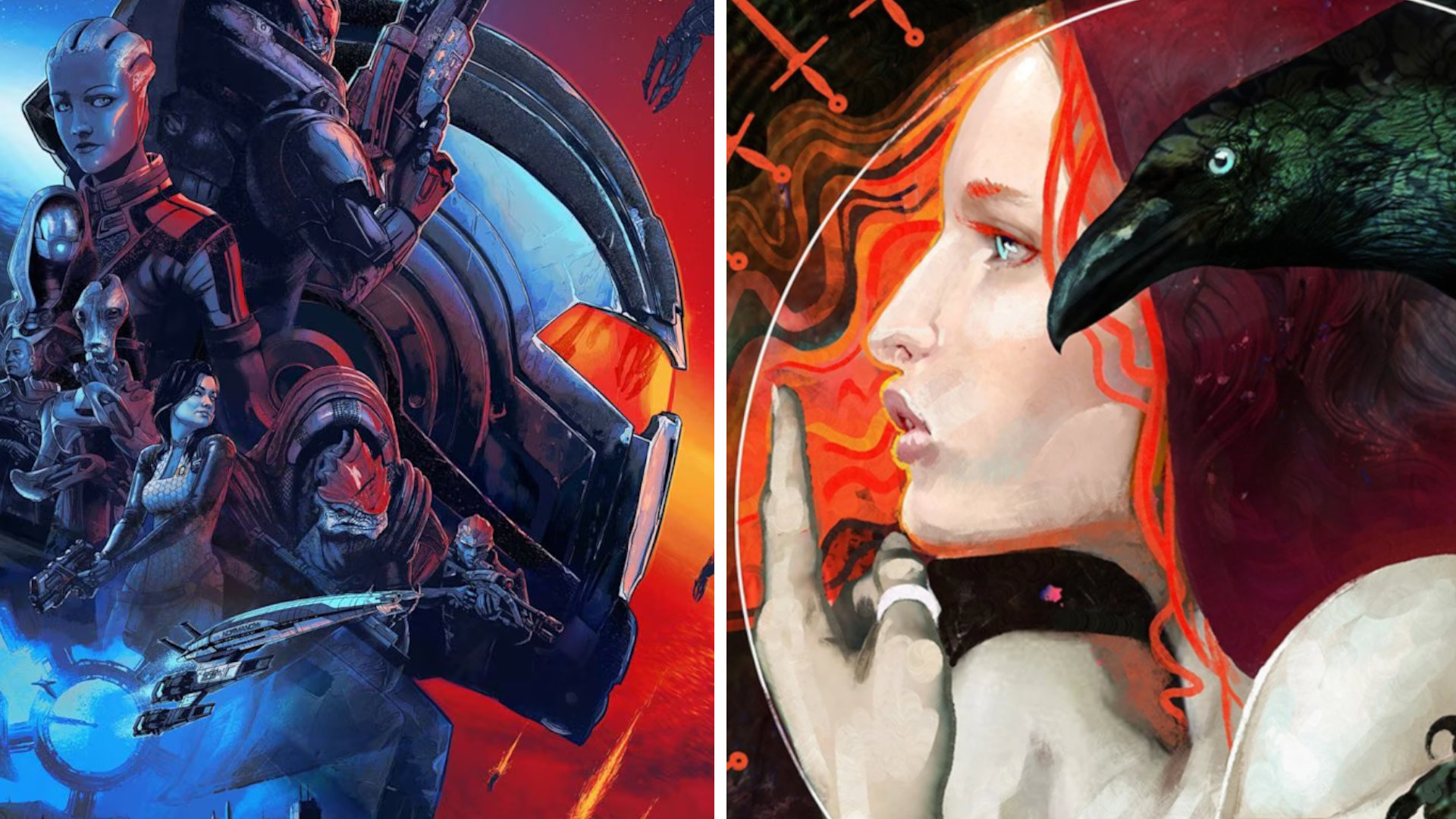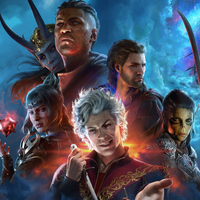'EA always preferred Mass Effect, straight up': Dragon Age creator reveals that his and Mass Effect's team 'didn't get along' at BioWare, as EA played favourites with its children
Two households, both alike in development (in fair BioWare, where we lay our scene).

It sure seems like the sun is setting on Dragon Age—with Veilguard falling short of expectations after years in development, EA seemingly learning exactly the wrong lessons, and sweeping layoffs including senior talent, I'm not holding my breath for the future. In my view, Veilguard was a semi-decent action RPG with a fumbled story, which just wasn't enough.
David Gaider, who authored the series but left Bioware in 2016 after Dragon Age: Inquisition, has revealed two truths. The first, not-so-shocking one, is that EA didn't really know what to do with Dragon Age (something you could glean from context)—the second, more shocking one is that BioWare was completely split down the middle circa 2010-2016, divided into two studios. Studios that, according to him, kinda resented each other.
In a Bluesky post, Gaider explains that after Dragon Age: Inquisition left him feeling exhausted, he "joined the new project that the former Mass Effect team in Edmonton was cooking up—the one that became Anthem … That was a mistake"—not Anthem, but rather, going from a Dragon Age to a Mass Effect team at BioWare.
"The thing you need to know about BioWare is that for a long time it was basically two teams under one roof: the Dragon Age team and the Mass Effect team. Run differently, very different cultures, may as well have been two separate studios. And they didn't get along.
"The company was aware of the friction and attempts to fix it had been ongoing for years, mainly by shuffling staff between the teams more often. Yet this didn't really solve things, and I had no idea until I got to the [Anthem] team," he adds: "The team didn't want me there. At all."
The difference, Gaider explains, seems to me almost high school in nature. Like BioWare had its own coterie of nerds and jocks, Montagues and Capulets, Jets and Sharks—you get the idea. He explains that Anthem had initially been conceptualised as grungy, Aliens-esque science fiction—and that he'd been given marching orders to turn it into a science fantasy romp. This met the existing team like oil on water.
"I don't think anyone told the team this. So they thought this change was MY doing. I kept getting feedback about how it was 'too Dragon Age' and how everything I wrote or planned was 'too Dragon Age' … Yet this was a team where I was required to accept and act on all feedback, so I ended up iterating CONSTANTLY."
The biggest gaming news, reviews and hardware deals
Keep up to date with the most important stories and the best deals, as picked by the PC Gamer team.
He says that "it became clear this was a team that didn't want to make an RPG … yet they wanted me to wave my magic writing wand and create a BioWare quality story without giving me any of the tools I'd need to actually do that."
This illuminates some of Gaider's prior words about BioWare's shifting team culture. Back in 2023, he wrote that the studio had come to "quietly resent" writers. Arriving in a new team only to be forced to "accept and act" on all feedback, be given orders contrary to their vision, and then made to be the fall-guy for those orders? Sure sounds like quiet resentment to me.
Gaider did consider a world where he'd "stick it out and try my best, but only if there was SOMETHING waiting on the other side, where I could have more say as Creative Director. I wanted to move up. I was turned down flat, no hesitation … Even more when I was told that, while I could leave the company if I wanted to, I wouldn't have any success outside of BioWare. But in blunter words." Yikes.
In a quote to a reply, Gaider theorises that this disdain for Dragon Age wasn't just silo'd into the Mass Effect (ME) team, but a general distaste from EA on high: "While I was at BioWare, EA always preferred Mass Effect, straight up. Their Marketing team liked it more. It was modern. It had action. They never quite knew what to do with DA, and whenever DA outperformed ME, ME got the excuses. If you ask me, it was always just shy of the axe since DA Origins."
If you ask me, it was always just shy of the axe since DA Origins."
Now, this is to be taken with a bit of salt. Gaider is a fantastic writer known for authoring one of gaming's best RPG worlds—but he was also severely burned by EA and BioWare, so there's some (understandable) subjectivity surrounding his words here.
However, his description here does pass muster. Namely, if writing teams were made to act on feedback no matter what, in a studio leaning towards Mass Effect and away from its gritty RPG roots? That sure explains why a group of people who have done great work on Dragon Age in the past somehow produced something I actively couldn't stand. It sure explains why Veilguard plays more like a Mass Effect game, too.
EA very much hasn't given me faith that it even understands why things didn't shake out. In the aftermath of Veilguard's lukewarm reception, CEO Andrew WIlson pretty much chalked its failure up to a lack of live service features. Which is so laughably, indescribably far from any of the criticisms I had for Veilguard that it's not even funny. If executives just listened to the people who are responsible for their successes… well, we'd live in a very different world, I suppose. Maybe Larian was right, and we should adopt the pirate model after all.
2025 games: This year's upcoming releases
Best PC games: Our all-time favorites
Free PC games: Freebie fest
Best FPS games: Finest gunplay
Best RPGs: Grand adventures
Best co-op games: Better together

Harvey's history with games started when he first begged his parents for a World of Warcraft subscription aged 12, though he's since been cursed with Final Fantasy 14-brain and a huge crush on G'raha Tia. He made his start as a freelancer, writing for websites like Techradar, The Escapist, Dicebreaker, The Gamer, Into the Spine—and of course, PC Gamer. He'll sink his teeth into anything that looks interesting, though he has a soft spot for RPGs, soulslikes, roguelikes, deckbuilders, MMOs, and weird indie titles. He also plays a shelf load of TTRPGs in his offline time. Don't ask him what his favourite system is, he has too many.
You must confirm your public display name before commenting
Please logout and then login again, you will then be prompted to enter your display name.


